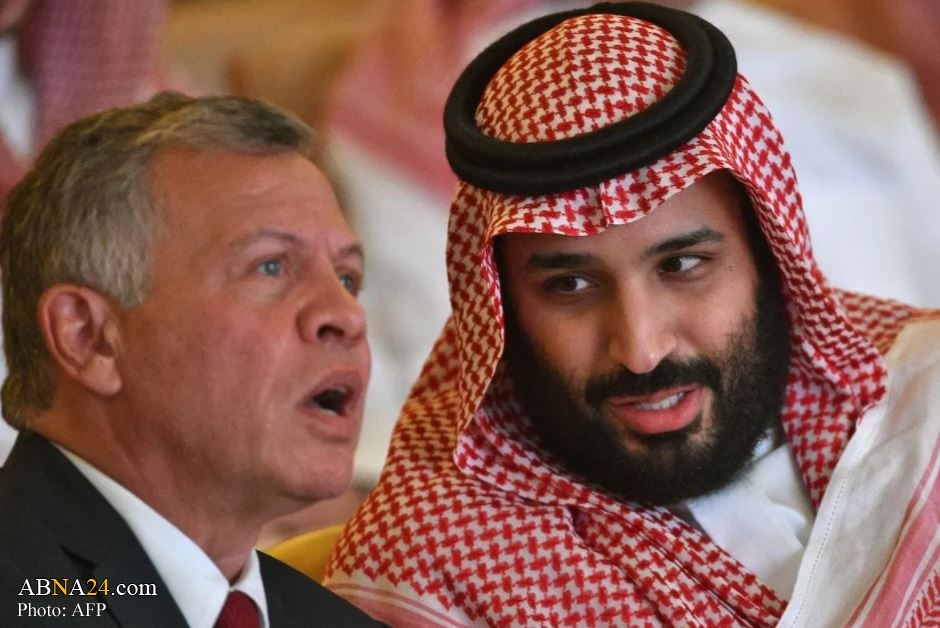AhlulBayt News Agency (ABNA): Jordan is now in a path different from the past years as Amman makes an apparent shift in its foreign policy. Traditionally an ally of the West in the region and an ally of Saudi Arabia and a center of compromise to the Israeli policy, Jordan in recent years has tended to change some of its foreign policy practices with its traditional allies. King Abdullah II congratulations to Ebrahim Raisi, the President-elect of Iran, while the Jordanian embassy in Tehran has been closed since 2016, was a sign of Amman's tendency to improve relations with Tehran in the near future. Also, the kingdom has stepped up its moves to normalize ties with the Syrian government and advocates return of Damascus to the Arab League despite Western opposition. Moreover, although Jordan was one of the Arab countries to undergo the Saudi-Emirati pressure to get involved in the anti-Yemeni war and then the blockade on Qatar and sometimes Amman gave in to these pressures, in recent months it has played a role in establishing the intra-Yemeni peace negotiations and broadened its contacts with Doha. Last week's Jordan-Qatar security cooperation agreement marked important news in the region and Amman's defiance of the Saudi-Emirati alliance.
Jordan's suffering economy and Persian Gulf Arab states' indifference
Jordan has been grappling with an economic risk triangle of poverty, unemployment and inflation for years. Jordan's economy, which is heavily dependent on foreign aids, has been deteriorating over time as global aids dropped and oil prices slumped. The country has almost no natural resources. At the same time, war and terrorism in neighboring countries have forced the government to spend a large part of the country's budget on security and military expenditures. The public sector, on the other hand, is no longer able to take in labor force, as annually around 600,000 graduates join the job-seeking community. Things have even worsened as coronavirus hit, pushing the unemployment to the unprecedented rate of 24 percent. The crisis reflected on the Jordanian labor force especially those working in the Persian Gulf Cooperation Council states. This situation directly affects the politics, making the cabinets life in the country hardly going beyond a year.
The foreign aid bids to the International Monetary Fund and wealthy Persian Gulf monarchies are either quitted by Amman as the creditors ask for austerity measures that risk sparking public protests or not met by the creditors themselves. In 2018, at a meeting arranged to assess Jordan's economic conditions, Saudi Arabia, the UAE, and Kuwait pledged $2.5 billion in financial assistance to Amman, but the promise did not materialize.
Amman, which is going through a difficult economic situation, first hopes to return Syrian refugees to their country by speeding up the settlement of the Syrian crisis in order to resolve part of the crisis, while Western countries and some Arab monarchies still fuel the violence in the war-ravaged nation. Second, Jordan is optimistic that by reopening the transit routes with Syria and Iraq it can reestablish trade with these two countries as fast as possible to restore the revenues and jobs lost since terrorism war hit these two countries in 2014. At Baghdad summit on June 28, King Abdullah, along with President Abdel Fattah el-Sisi of Egypt and Prime Minister Mustafa al-Kadhimi of Iraq predominantly discussed boosting economic ties among the three nations.
Palestinian cause and knife in the back by friends
There is no doubt that the Palestinian cause and conflict of views with the Arab countries advocating normalization with the Israeli regime based on the "deal of the century" initiative and departure from the Arab peace initiative and Oslo Accords are the main driver behind Amman reviewing its policy towards the Iran-led Axis of Resistance and its traditional Arab allies in the Persian Gulf. Jordan, that most of its population, is made up of Palestinian refugees, has always sought a way to return Palestinian refugees home, and although it is one of the pioneers in normalizing relations with the Israeli regime, opposed Trump’s deal of the century, which ignored the Palestinian refugees' right to return and called for part of Jordan to be handed to the Palestinians as an alternative state. From another view, Arab-Israeli normalization project, revived by the UAE and Bahrain, practically cut Jordan's weight in the Palestinian case, and downgraded its position in the West's regional policy in a blow to Amman's interests. For Jordanian leaders, embracing the normalization project and abandoning the Arab initiative represented a knife in Jordan's back. To demonstrate its discontentment, Amman began to get closer to the opponents of the normalization, namely members of Resistance-axis.
King Abdullah angry at bin Salman betrayal
Another driver behind the change in Jordan's foreign policy is the king's fury about April coup attempt against him. The core architects were suspected to be the Israelis, assisted by Saudis and Emiratis. Bringing to the trial Bassem Awadullah, the former royal chief of staff and special Jordan envoy to Saudi Arabia as one of the key coup plotters and also showing ignorance to the Saudi initiatives for investigation since discovery of the plot bore witness the king's anger at the Saudi Crown Prince Mohammed bin Salman's conspiracy.
/129

